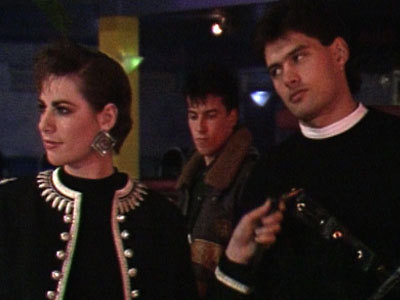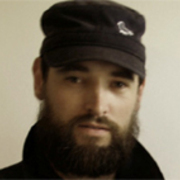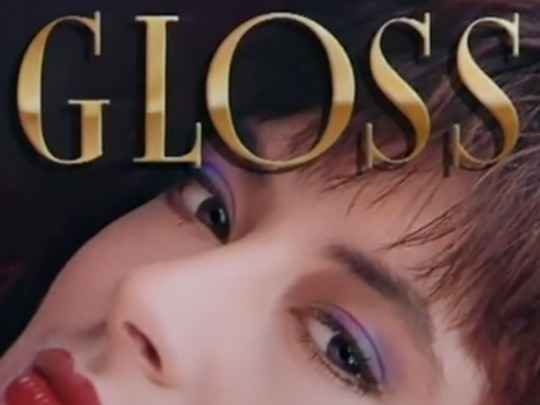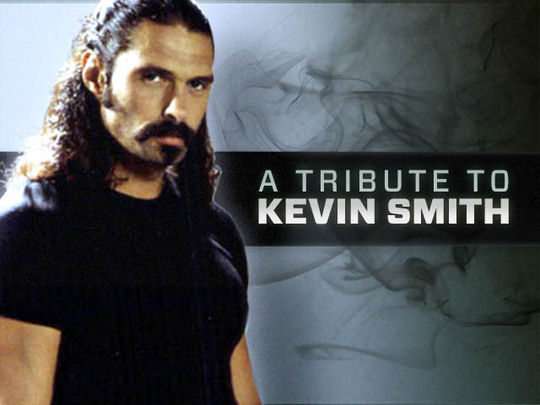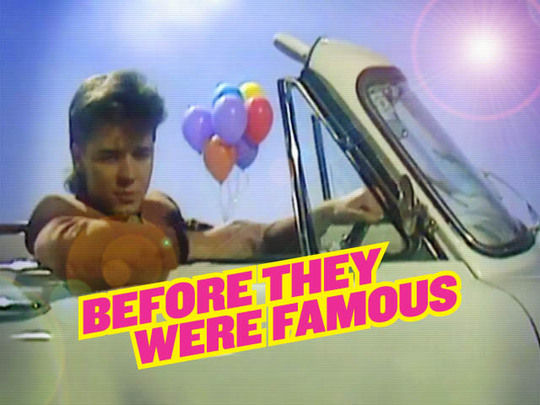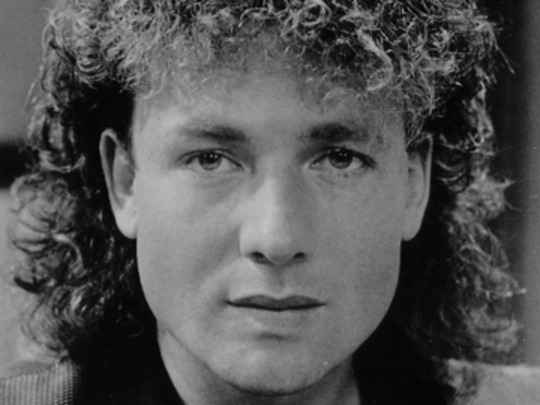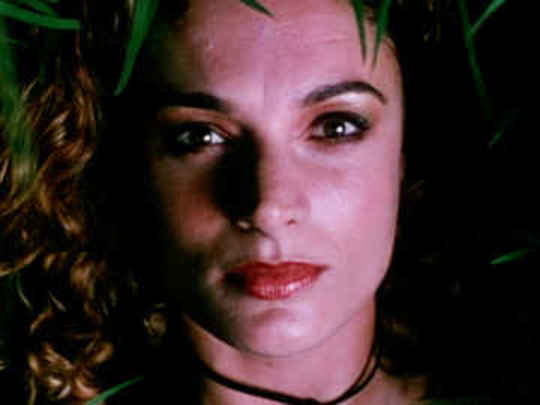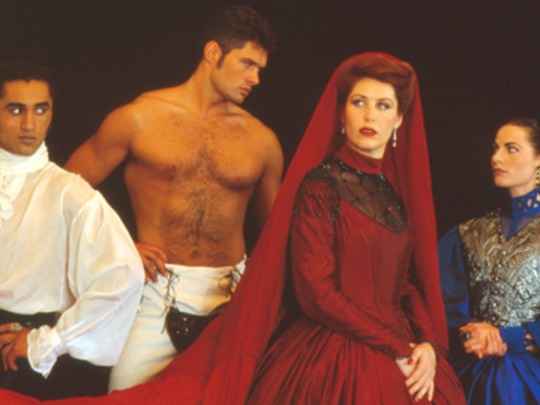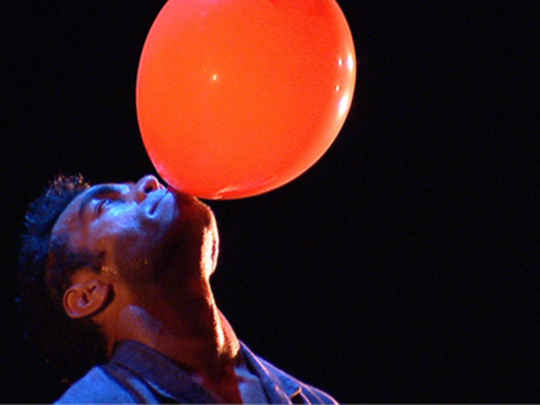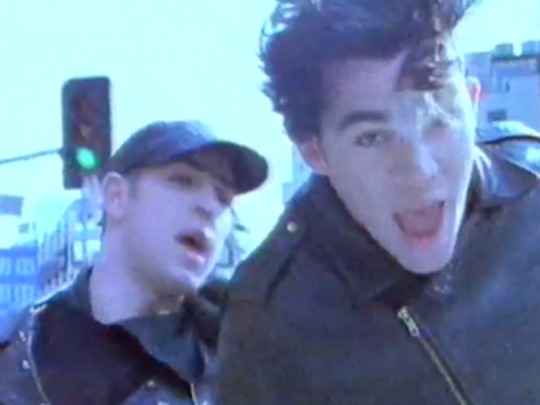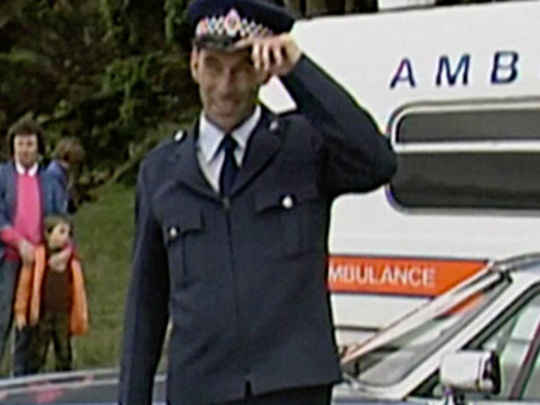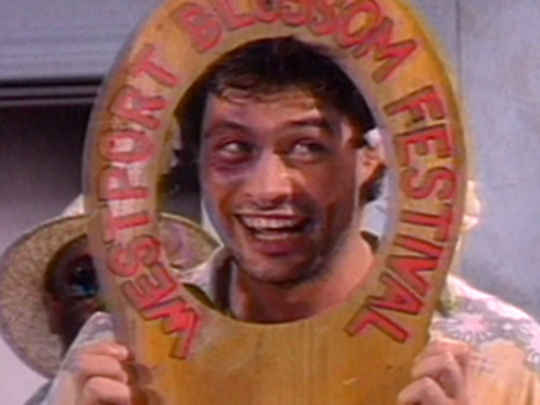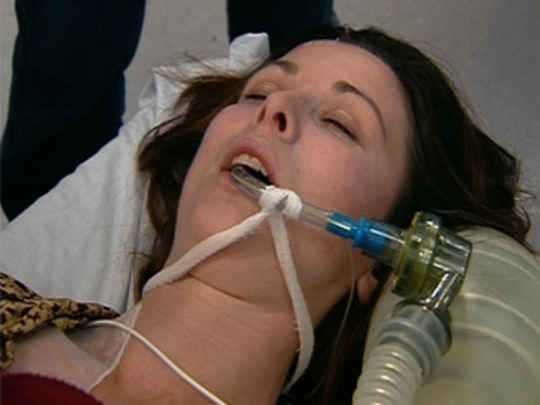Gloss - Kevin Smith's TV debut
Television (Excerpts) – 1989
This title has two backgrounds:
A Perspective
"If you've got it, flaunt it; if you haven't, get it."
This was TV reviewer Diana Wichtel's take on the ethos behind the television series Gloss.
Gloss was initiated in 1985 against the backdrop of a bull market and America's Cup boosterism. It was the 80s and New Zealand had swapped agriculture for aspirational living. We wanted to see ourselves as less bottom of the world and more "here we come and we are sailing" (as the infamous Cup campaign song warbled).
Gloss was what the era demanded. Gloss producer Janice Finn:
"When John [McRae, TVNZ head of drama] suggested he was looking for another series [after Finn's previous series The Seekers], I knew what I'd like to make, something a bit like Dynasty, something about the 80s and what was happening in Auckland ... wealth had changed and become very obvious. People were chucking money around and being very over-the-top in spending their dough."
The Gloss concept revolved around a wealthy family, the Redferns, and a lucrative high-fashion magazine business.
"At the time I used to read Rosemary McLeod, her acerbic wit was very amusing. So I rang Rosemary, asked her if she'd be interested and she wrote the format ... having all the magazine background, of course, Rosemary was brilliant."
McLeod's zine scenario combined with a production-designed sumptuousness that hadn't been seen before in Kiwi soaps. As much attention was paid to shoulder pads and hemlines (fashion designer Liz Mitchell crafted the costumes for Gloss) as the story-lines.
Melodramatic plots took in conflict, catastrophe, marital crisis, affairs, rape, disease, accidents, kidnapping, and corruption. Writer James Griffin, who went on to craft Kiwi favourites Shortland Street and Outrageous Fortune, began his screenwriting career on Gloss.
The show was peopled with memorable yuppie characters, not the least of whom was the bitchy, but very smart, high-fashion magazine editor Maxine Redfern (Ilona Rodgers). This series also introduced viewers to future talent such as actor Simon Prast, playing Alistair Redfern, who went on to be a driving force in the Auckland arts scene, and Lisa Chappell, as Chelsea Redfern, who would became a fixture in Australian TV drama series McLeod's Daughters.
Other acting luminaries, such as Peter Elliott (Rex), Miranda Harcourt (Gemma), Danielle Cormack (Tania), Temuera Morrison (Sean), Geeling Ng (Jasmine), Andy Anderson (Matt), Kevin Smith (Damien), Kerry Smith (Magda), Mark Ferguson (Giles) and Craig Parker (Justin), also appeared in the show.
Gloss had a new sophistication and cultivated a flagrantly international flavour (particularly compared to earlier local TV drama) and it knew the difference between methode champenoise and champagne.
"She [McLeod] thought up Maxine and Magda, two characters very close to her heart ... and I wanted the rich family ... Both of us wanted a comic aspect, a kind of satire on the times ... It was very different to anything that had been done before because it was so frivolous. For the times it was bold and bit in your face."
Kiwi viewers had seen American super-soaps Dallas and Dynasty. They got that this local media-and money show reflecting Rogernomics and the long-lunch years of excess was both of the genre and a send-up.
The series largely screened after the bubble had burst in 1987 and the often cynical and un-politically correct tone caught the mood. Gloss became event-viewing and fans would gather together for Gloss parties to watch the latest Redfern antics.
During the Gloss era, the advent of more sophisticated ratings analysis changed TV programming completely. The new ability to break down ratings according to demographics revealed that Gloss was a hit with women and drew a cult following amongst young adults - a good result for advertisers.
Fifty-five 50-minute episodes of this TV2 flagship were made before the TVNZ drama department closed down in 1988 and it was decided to outsource productions.
Wichtel calls Gloss a "glitter-soap" and as all things 80s enjoy a retro revival Gloss is enjoying a shining twentieth anniversary:
"It's the gilt off the gingerbread
The icing on the cake
It's monuments and mirrorglass
The city's on the make
Devil take the hindmost
So no one counts the cost
Such a sweet seduction
Glosssssssss"
A perspective
"If you've got it, flaunt it; if you haven't, get it."
This was TV reviewer Diana Wichtel's take on the ethos behind the television series Gloss.
Gloss was initiated in 1985 against the backdrop of a bull market and America's Cup boosterism. It was the 80s and New Zealand had swapped agriculture for aspirational living. We wanted to see ourselves as less bottom of the world and more "here we come and we are sailing" (as the infamous Cup campaign song warbled).
Gloss was what the era demanded. Gloss producer Janice Finn:
"When John [McRae, TVNZ head of drama] suggested he was looking for another series [after Finn's previous series Seekers], I knew what I'd like to make, something a bit like Dynasty, something about the 80s and what was happening in Auckland ... wealth had changed and become very obvious. People were chucking money around and being very over-the-top in spending their dough."
The Gloss concept revolved around a wealthy family, the Redferns, and a lucrative high-fashion magazine business.
"At the time I used to read Rosemary McLeod, her acerbic wit was very amusing. So I rang Rosemary, asked her if she'd be interested and she wrote the format ... having all the magazine background, of course, Rosemary was brilliant."
McLeod's zine scenario combined with a production-designed sumptuousness that hadn't been seen before in Kiwi soaps. As much attention was paid to shoulder pads and hemlines (fashion designer Liz Mitchell crafted the costumes for Gloss) as the story-lines.
Melodramatic plots took in conflict, catastrophe, marital crisis, affairs, rape, disease, accidents, kidnapping, and corruption. Writer James Griffin, who went on to craft Kiwi favourites Shortland Street and Outrageous Fortune, began his screenwriting career on Gloss.
The show was peopled with memorable yuppie characters, not the least of whom was the bitchy, but very smart, high-fashion magazine editor Maxine Redfern (Ilona Rodgers). This series also introduced viewers to future talent such as actor Simon Prast, playing Alistair Redfern, who went on to be a driving force in the Auckland arts scene, and Lisa Chappell, as Chelsea Redfern, who would became a fixture in Australian TV drama series McLeod's Daughters.
Other acting luminaries, such as Peter Elliott (Rex), Miranda Harcourt (Gemma), Danielle Cormack (Tania), Temuera Morrison (Sean), Geeling Ng (Jasmine), Andy Anderson (Matt), Kevin Smith (Damien), Kerry Smith (Magda), Mark Ferguson (Giles) and Craig Parker (Justin), also appeared in the show.
Gloss had a new sophistication and cultivated a flagrantly international flavour (particularly compared to earlier local TV drama) and it knew the difference between methode champenoise and champagne.
"She [McLeod] thought up Maxine and Magda, two characters very close to her heart ... and I wanted the rich family ... Both of us wanted a comic aspect, a kind of satire on the times ... It was very different to anything that had been done before because it was so frivolous. For the times it was bold and bit in your face."
Kiwi viewers had seen American super-soaps Dallas and Dynasty. They got that this local media-and money show reflecting Rogernomics and the long-lunch years of excess was both of the genre and a send-up.
The series largely screened after the bubble had burst in 1987 and the often cynical and un-politically correct tone caught the mood. Gloss became event-viewing and fans would gather together for Gloss parties to watch the latest Redfern antics.
During the Gloss era, the advent of more sophisticated ratings analysis changed TV programming completely. The new ability to break down ratings according to demographics revealed that Gloss was a hit with women and drew a cult following amongst young adults - a good result for advertisers.
Fifty-five 50-minute episodes of this TV2 flagship were made before the TVNZ drama department closed down in 1988 and it was decided to outsource productions.
Diana Wichtel calls Gloss a "glitter-soap", and as all things 80s enjoy a retro revival Gloss is enjoying a shining return to the limelight:
"It's the gilt off the gingerbread
The icing on the cake
It's monuments and mirrorglass
The city's on the make
Devil take the hindmost
So no one counts the cost
Such a sweet seduction
Glosssssssss."
